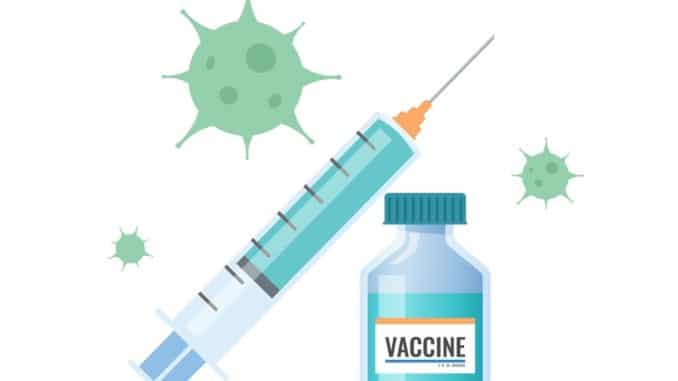
As the vaccine continues to be rolled out across the UK, there are important cultural competencies that need to be taken into account
CREDIT: This is an edited version of an article that originally appeared on The BMJ
The development of a vaccine for COVID in a record nine months from concept to regulatory approval in the UK is one of the greatest scientific successes in recent history. However, the speed of development and approval has led some potential recipients to have concerns about the vaccine’s safety. These concerns may jeopardise the vaccination programme since the effectiveness of any vaccine depends on the number of people willing to be vaccinated.
Globally, ethnic minority communities have been disproportionately affected by COVID-19. Ethnicity is a major risk factor for adverse outcomes, along with age, male sex, obesity, deprivation, and comorbidities. Now, at the start of the UK’s national vaccination programme, culturally competent conversations with ethnic minority communities are more important than ever to enable informed consent, allay genuine concerns, break down barriers to uptake, and engage facilitators for the roll-out.
One large global study reported lower levels of confidence in vaccination in several South Asian and other developing countries compared with in Europe. A US survey found vaccine hesitancy was associated with young age, lower educational attainment, and black ethnicity, and a UK poll suggests greater reluctance among ethnic minority and lower income groups. Despite reports detailing the disproportionate effect of COVID-19 on ethnic minority communities in the UK, no clear recommendations were made, or implemented, to address concerns.
Inadequate ethnic coding in medical records is an ongoing problem, making it difficult to identify the scale of health inequalities. Ethnic coding was introduced in 1995, but the persistent failure of the NHS to make coding mandatory suggests that any drive to systematically tackle this issue is challenged at the outset. Furthermore, the participation of ethnic minorities in trials evaluating vaccines has been dismally low; the published data from Pfizer-BioNTech’s vaccine trials reports around four per cent Asian, and nine per cent black, participation.
Overcoming barriers
Cultural competence is defined as the ability of health systems to provide care to patients with diverse values, beliefs and behaviours by tailoring delivery to meet patients’ social, cultural and linguistic needs. Open and mature conversations with communities are important to reassure people about the safety and efficacy of COVID-19 vaccines, along with clear and accessible explanations of the accelerated authorisation process used by the UK’s Medicines and Healthcare Products Regulatory Agency.
We recently recommended that ethnic minority communities should be considered a priority for vaccination, but this is not yet in place. One potential alternative strategy is to use validated risk scores, such as QCOVID, that consider a range of risk factors, including comorbidities, ethnicity, age and deprivation.
Providing local facilities for vaccination will be vital to ensure ease of access; uptake will be reduced if people are required to travel long distances on public transport while the virus is still circulating. Vaccines should be available as close as possible to vulnerable populations, including care homes residents, older people living at home and high risk ethnic minority communities. Ethnic minority adults are disproportionately represented among low paid, frontline workers, many of whom works shifts, so vaccination should be available at times most appropriate to their working patterns.
The way forward
Information about the vaccines should be widely distributed, in multiple languages, in both written and graphic formats to enable people from all ethnic backgrounds to make fully-informed choices. No community or individual should be stigmatised for initial low uptake, as occurred earlier in the pandemic in Leicester and other areas with large ethnic minority populations.
The Joint Committee on Vaccination and Immunisation and Public Health England should launch information campaigns led by community leaders, faith leaders, local healthcare providers and practitioners – in conjunction with trusted third sector alliances such as Community Champions – to increase positive messaging around vaccination and counteract disinformation. Data suggest the Indian subcontinent has some of the highest users of social media-based messaging services, with many relying on this unregulated medium for accessing news, including medical advice; digital platforms and innovative campaigns should be initiated to counter misinformation on these platforms. Anyone with legitimate concerns about vaccination should not be dismissed as an ‘anti-vaxxer’ but heard and responded to respectfully.
Positive, evidence-based and appropriately targeted messaging about vaccination should stress the personal, economic and social benefits of vaccination, including the ability to celebrate festivals, marriages and other social events safely, and to protect vulnerable adults in multigenerational families. Such messaging should be coupled with clear information about the higher risk of severe illness and death from COVID-19 among ethnic minority communities globally.
As an early adopter of mass vaccination, the UK’s NHS has a unique opportunity to show the international community a vaccination programme rooted in equality, diversity and cultural competence that meets the needs of everyone.
We must seize this opportunity with both hands.


Be the first to comment